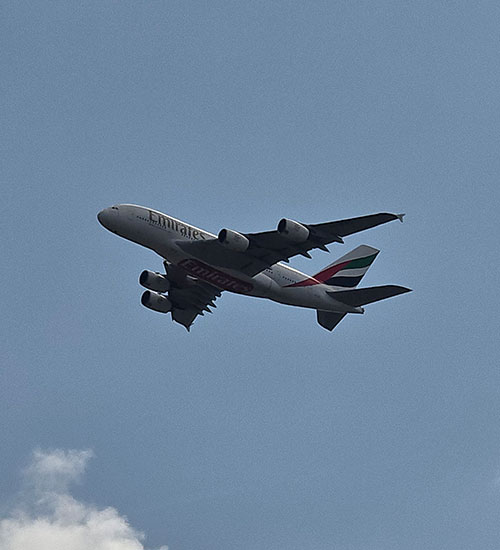
Evidence links aviation catering waste to emissions and recommends policy reform
20 June 2025
A new article on the climate impact of aviation waste has been published in Waste Management, authored by Lois Pennington, Andrew Welfle, Ben Parkes and Alice Larkin.
A new article published in Waste Management by Pennington, Welfle, Parkes and Larkin provides the first national-level estimate of the climate impact of International Catering Waste (ICW) - the food and packaging waste generated on international flights. The study focuses on the UK, estimating that 89,000 tonnes of ICW entered the country in 2022, resulting in up to 40,500 tonnes of CO₂-equivalent emissions due to mandatory incineration or landfill of ICW. The authors demonstrate that treating this waste like domestic waste, using recycling and anaerobic digestion, could reduce emissions by 33,900 tonnes annually.

What the study reveals:
- Highlights the misalignment between current ICW regulations and climate targets, and proposes practical, evidence-based reforms to enable safer, lower-carbon alternatives.
- Offers a replicable methodology and contributes to the growing call for systemic change in aviation sustainability policy.
- Provides the first national estimate of aviation waste emissions and a replicable method for policymakers to assess and reform aviation waste regulations.
- Highlights ICW as a previously unquantified source of aviation emissions.
